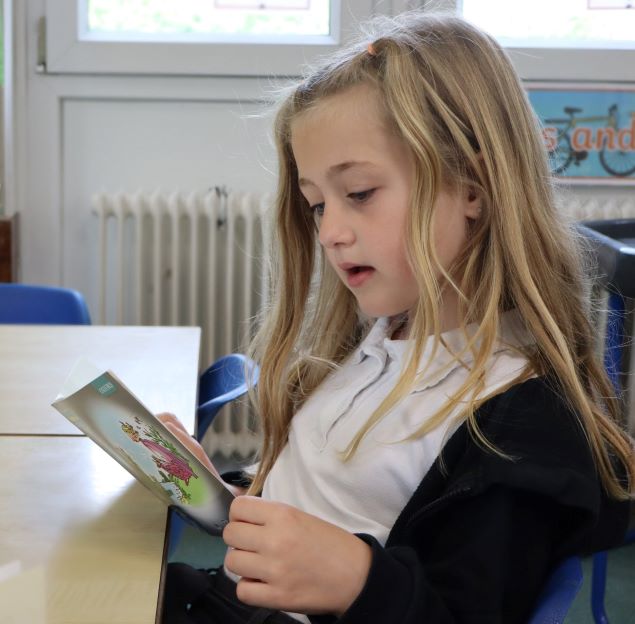Phonics and early reading

Our teaching of phonics and early reading is effective. Typically, a higher percentage of children than the national average pass the Year 1 phonic check, although we are always striving for all children to achieve this.
In 2022 84% of children in Year 1 passed the test (the national figure was 74%)
In 2022 84% of children in Year 2 had passed the test before moving to Year 3.
Reading can be split into two broad areas: de-coding and comprehension. De-coding is learning to read out loud by turning writing into sounds whereas comprehension is learning to make sense of what has been written. In our school we teach use a scheme called Read Write Inc. to teach de-coding and the initial stages of comprehension; this is often referred to as phonics.
Read Write Inc. is for children learning to read in reception and Years 1 and 2, and for struggling readers in Years 3 and 4.
It is also suitable for pupils with SEND in older year groups.
Read Write Inc. Phonics is a DfE-validated systematic synthetic phonics programme with a whole-school approach to teaching early reading and writing.
It teaches children to read accurately, fluently and with understanding, to spell, and to write their own compositions.
Direct teaching
Direct teaching underpins Read Write Inc. It is the quickest route to ensuring all children learn to read and write. Every day, children learn new sounds, and review previous sounds and words.
They apply what they’ve been taught by reading words containing the sounds they know in matched decodable books and other texts, and write these sounds in individual words and, later, sentences.
Teachers engage children and ensure their full participation using call and response, choral reading and partner practice. Partners practise everything they are taught and answer every question together. This keeps children working and thinking throughout the lesson, and gives teachers opportunities to check if something needs explaining more clearly.
Children learn the routines and behaviours necessary for each activity, and practise these until they use them automatically. This allows them to focus on what matters most – learning to read and write.
Grouping
Children work in a progress group for 45 minutes each day. This means they learn at their ‘challenge’ level for four hours a week. Reception children build up to this hour throughout the year. This is supplemented with further English teaching in class.
The reading leader assesses children’s phonic knowledge before they start the programme and then every half term. Regrouping children maximises their progress and allows teachers to provide extra practice for some and whisk others through the programme.


